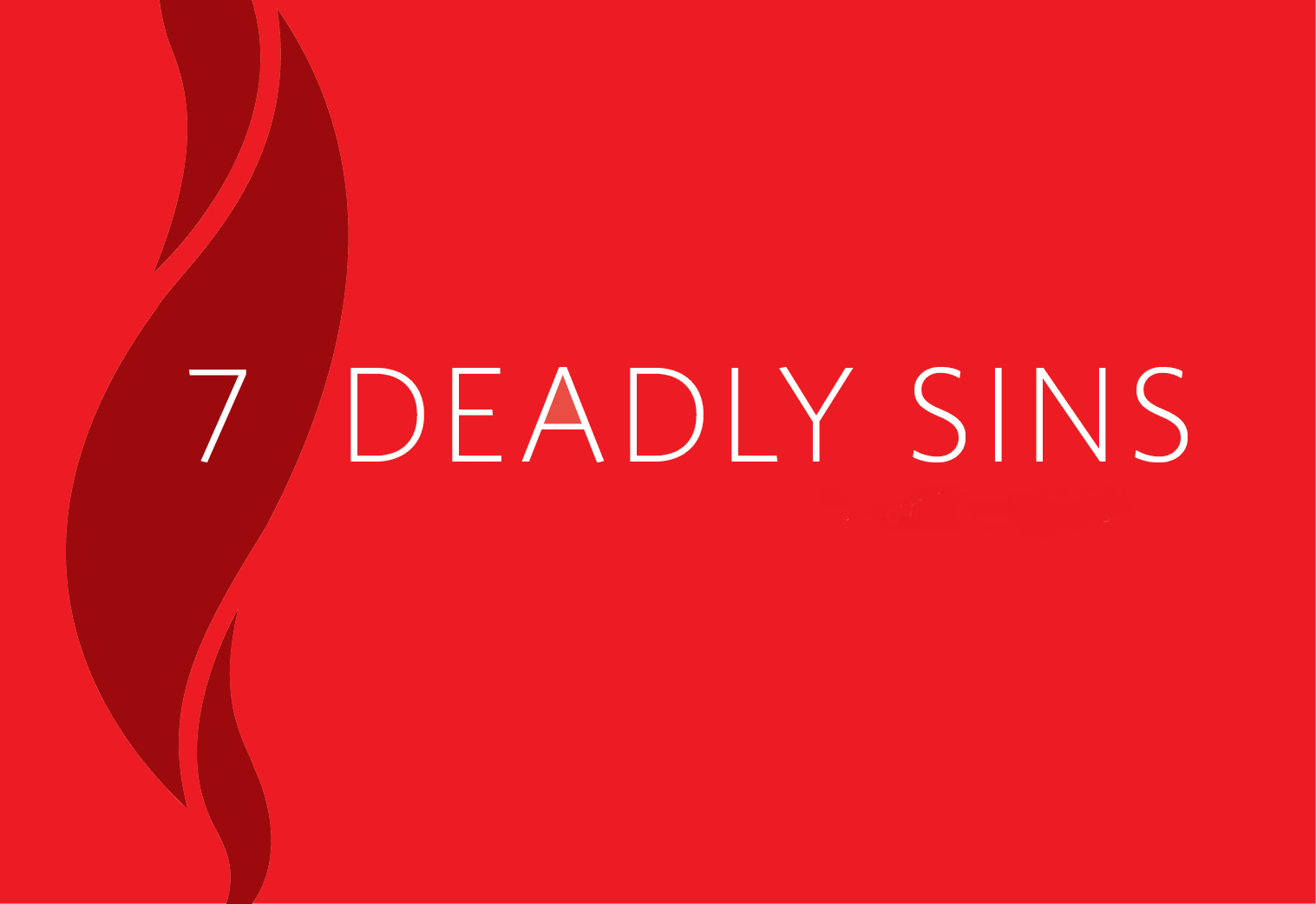Every profession has its list of “sins” which can forever taint a person, group or organization guilty of committing one or more of them.
Singers who are revealed to lip-sync to someone else’s vocalization are never taken seriously again.
Athletes found to be taking performance-enhancing drugs are forever flagged with an asterisk next to their accomplishments.
A political leader who violates the trust of those who supported them is cast aside for someone else. (By the way, it is acceptable to violate the trust of those who did not support them. But I digress.)
The treasurer for the local school PTA who steals money from the “playground upgrade” fund will be known for this one thing forever.
For authors of books there are a number of misdeeds which land them in the “hall of shame” among their peers and readers. Engage in any one or combination of these and they will find themselves at worst, without a readership and at best, plagued by doubt by their colleagues.
Best to find something else to do with your life.
Whether you are a traditional or self-published author, here is the list of seven deadly sins which will ruin your career, in order of severity:
- New title doesn’t make it new – putting a new title on your old book without noting the former title somewhere will sting a reader who might have read the previous book. Always mention the previous title. Or better yet, write an entirely new book.
- Forwards, Afterwards and other misused and misspelled words – Spell-check won’t catch everything because as good as it is, it is not artificial intelligence and won’t discern context. Foreword is part of a book. Forward is a direction.
- Unethical marketing – Once you are caught buying your own books from retailers who report sales to best-seller lists or doing other things to manipulate the lists, life will not get better and easier for you. Overstating your credentials also falls into this category.
Now we get into the biggies:
- Fiction non-fiction – Creative non-fiction is a category, but you need to be clear about it. If you write a non-fiction book and make up conversations and information, which you didn’t experience yourself or talk to someone who did, your credibility flew out the window like a bird freed from its cage.
- Libel – Nothing like being really, really mad at someone and writing that anger in a book to get the juices flowing. If you knowingly or unknowingly write false statements about someone, which damages their reputation, let the legal games begin. If the statements are true, you better be prepared to prove it, maybe in court. This is why most publishers will include a paragraph in a literary contract about a “legal reading” where an attorney will review a manuscript for possible problems, which could crop up later on. This is a virtual ticking time bomb for self-published authors who skip this step. If you can’t write something nice then maybe don’t write it at all.
- Copyright violation – Stealing another person’s idea and calling it your own is almost as bad as it gets for authors. There is an expectation of originality by readers of books. Making someone else’ ideas your own could ruin your credibility…forever. God forgives, readers don’t.
And the big league of author sins:
- Plagiarism – Far beyond stealing someone else’ ideas or concepts, the outright stealing of their words was the trigger for a failing grade in middle school essays and the nuclear bomb to destroy an author’s career. Best to find a completely different line of work not involving writing or using words of any kind.
Wasn’t this fun today?



 When Your Book Doesn’t Sell
When Your Book Doesn’t Sell

Dan, your statement about buying one’s own books to push sales up to bestseller level shocked me. Just how many copies would an author have to buy, and how could they possibly think that was a good way to spend their own money? Independent of the ethical question, it doesn’t seem to me that they would ever recoup the cost at a 10% royalty rate.
It would need to be thousands of copies costing $100,000 or more to make a dent. This has been done by publishers and authors who have sufficient financial backing of a company or ministry (yes, ministry).
Fortunately (or unfortunately if you are the one doing it) these purchases are pretty simple to spot but it doesn’t prevent people from thinking it is worth the risk. Once in a while the sleight of hand works. Most often it doesn’t and the damage will linger.
Wow, I didn’t realize authors bought their own books to rack up sales. Goodness, that’s low, not to mention very sad. 🙁
Carol and Tisha,
I believe that’s what Mark Driscoll did through ResultSource to become a “bestselling author.” Once he was discovered.
“The church paid an estimated $210,000 to ResultSource to make “Real Marriage” a bestseller, according to a document obtained by World Magazine, a Christian periodical.”
Source: http://www.latimes.com/books/jacketcopy/la-et-jc-pastor-contract-resultsource-bestseller-lists-20140305-story.html#axzz2vCwCm0fo
New covers on books that were never distributed is a good idea. But, yes, even then it’s smart to own that the book is a rerelease. It’s also smart to change covers (if you can) if the book isn’t selling. Changing covers isn’t the same thing as a “new release”. It’s just smart marketing for digital property. Harder with paper. Though is done sometimes in reprints.
Dan, thank you for the awesome posting! I will be sure to steer clear of those things, though I run into my students plagiarizing all the time. “What good is a college education if all you did was copy and paste your papers?”, I ask myself every time I find a cheater in one of my classes. Thanks for the warnings!
YES! People should know this stuff. Thank you for the reminder Dan.
Dan, thanks for these very pertinent reminders. And I’ve been waiting for someone to join me in the “anti-forward, pro-foreword” movement. It makes me cringe almost as much as when people sing about “prostrate before the cross.”
Oh, I did it–I meant “prostate” instead of “prostrate.” Coffee must have worn off.